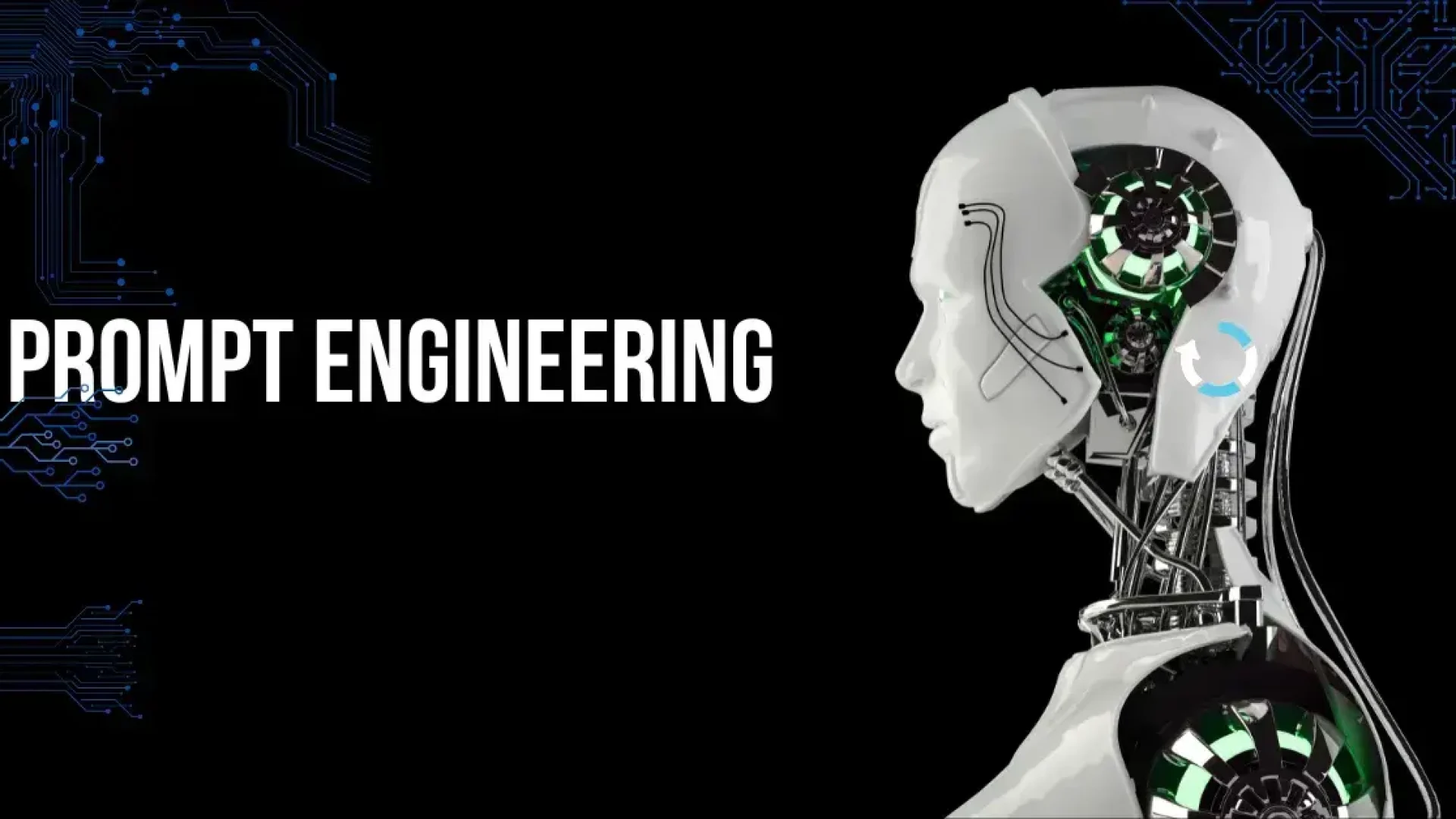Stories you may like
Prompt Engineer Job Description
If your company is focusing on artificial intelligence (AI), you may be interested in hiring a prompt engineer who can write and optimize the prompts AI uses to generate results for users. The key to hiring a qualified candidate for this technical role is to write an effective prompt engineer job description.
You can save time by editing this template to meet your hiring needs. It can be helpful to gain more inspiration by seeing how other companies are hiring for artificial intelligence jobs.
Start your job description with a few sentences describing what the job is and who would make a good candidate. This way, job searchers will quickly understand whether the position sounds interesting, and you will have an easier time attracting qualified candidates.
For example, you could write something like:
We are looking for a talented and enthusiastic prompt engineer to join our team and play a crucial role in unlocking the potential of our AI models. You will be responsible for designing, crafting, and optimizing prompts that guide our AI systems to generate accurate, informative, and creative outputs. This role demands a unique blend of creative writing skills, technical expertise, and analytical thinking to push the boundaries of AI-powered language generation.
Prompt Engineer Job Responsibilities: In this section of your prompt engineer job description, you’ll include a list of the most important responsibilities. Include a comprehensive list so potential candidates can determine whether they are interested in the role and have the skills and experience needed to be successful. Some common job responsibilities include:
- Design and develop prompts for various applications, including text generation, translation, question answering, and creative writing.
- Collaborate with product teams, data scientists, and engineers to understand user needs and translate them into effective prompts.
- Analyze and iterate on prompts based on performance metrics and user feedback to ensure high-quality outputs.
- Conduct experiments and research to test new prompting techniques and optimize existing workflows.
- Stay up to date on the latest advancements in national language processing (NLP) and AI, and apply those insights to your work.
- Document and communicate your work clearly and concisely to technical and non-technical audiences.
- Maintain an organized and efficient workspace, meeting deadlines and managing multiple projects simultaneously.
Work Hours and Benefits: This section of your prompt engineer job description, is where you’ll share the hours your prompt engineer will be expected to work. Mention whether you’re hiring for a full- or part-time position and if you allow employees to work from home or participate in a hybrid work environment.
Attract top talent by noting the benefits and perks your company offers, such as:
- health and wellness benefits
- retirement planning
- flexible work arrangements
- professional development opportunities
- childcare assistance
Prompt Engineer Qualifications and Skills: Next, share the qualifications and skills. It’s beneficial to delineate what is required and what is preferred because some potential candidates will only apply for a role if they meet all the requirements.
- Strong understanding of NLP concepts and techniques.
- Experience working with large language models and other AI systems.
- Excellent written and verbal communication skills, with a passion for language and storytelling.
- Ability to think creatively and solve problems, adapting to new challenges and changing priorities.
- Strong analytical skills and attention to detail to evaluate and optimize prompts.
- Ability to collaborate effectively with a cross-functional team.
- Familiarity with programming languages and scripting skills are a plus.
Education, Experience, and Licensing Requirements:
- Bachelor’s degree in computer science, linguistics, writing, or a related field.
- Proficiency in programming languages such as Python and experience with relevant libraries and frameworks.
- At least [x years] of proven experience in prompt engineering or a related role in the AI and Chatbots domain
Key Responsibilities
-
Prompt Design & Optimization – Crafting effective instructions to achieve accurate, consistent AI results.
-
Testing & Iteration – Running experiments with different prompt styles, lengths, and formats.
-
Fine-tuning Workflows – Creating reusable templates for AI-assisted tasks.
-
Model Behavior Analysis – Observing AI responses to identify patterns, strengths, and weaknesses.
-
Collaboration with Teams – Working with developers, data scientists, or content teams to embed prompts into systems or tools.
-
Ethical & Bias Awareness – Ensuring prompts avoid harmful or biased outputs.
Skills Needed
-
Strong language skills (clear, precise communication)
-
Analytical thinking (testing and refining)
-
Domain knowledge (adapting prompts to specific industries)
-
Basic coding (often Python, for AI API integration)
-
Creativity (innovative approaches to instructions)
-
Understanding of AI limitations (knowing what’s realistic)
What Does a Prompt Engineer Actually Do?
A Prompt Engineer is a specialist who crafts, refines, and optimizes input queries (prompts) to guide AI models, particularly Large Language Models (LLMs), to generate accurate, relevant, and high-quality responses. They bridge the gap between human intent and AI capability.
Prompt Engineering is often confused with or compared to other roles:
- Prompt Engineer vs. AI Developer / ML Engineer: AI Developers or Machine Learning Engineers build, train, and deploy the AI models themselves. Prompt Engineers work with these pre-trained models, focusing on how to best interact with them to achieve specific results, rather than building the model’s core intelligence.
- Prompt Engineer vs. AI Content Creator: An AI Content Creator uses AI tools (often powered by prompts) to generate content for various purposes. A Prompt Engineer goes deeper, focusing on the design and optimization of the prompts themselves to ensure the AI generates the desired quality, style, and accuracy consistently. They are often involved in the underlying strategy of AI interaction, not just content output.
Key Skills Required for Prompt Engineers
Technical Skills
Understanding of LLMs
Knowledge of how large language models work, their capabilities, and limitations.
Prompt Structuring Techniques
Mastery of various prompting methods (e.g., few-shot, chain-of-thought, persona prompting).
Basic Programming (Python)
Familiarity with Python for interacting with AI APIs and automating prompt testing.
Experimentation & A/B Testing
Ability to design experiments to compare prompt performance and analyze results.
Data Analysis Fundamentals
Skills to analyze AI outputs, identify patterns, and measure prompt effectiveness.
Knowledge of AI Tools & Platforms
Proficiency with tools like OpenAI Playground, Hugging Face, or specific model APIs.
Soft Skills
Critical Thinking & Problem Solving
Ability to diagnose AI output issues and creatively devise solutions through prompts.
Creativity & Innovation
Inventing novel ways to instruct AI and achieve desired outcomes.
Communication
Clearly articulating prompt strategies and AI capabilities to non-technical stakeholders.
Attention to Detail
Precision in prompt wording, syntax, and instruction hierarchy.
Adaptability & Continuous Learning
Staying current with rapidly evolving AI models and prompting techniques.
Linguistic Intuition
A strong grasp of language, semantics, and how nuance affects AI understanding.









User's Comments
No comments there.